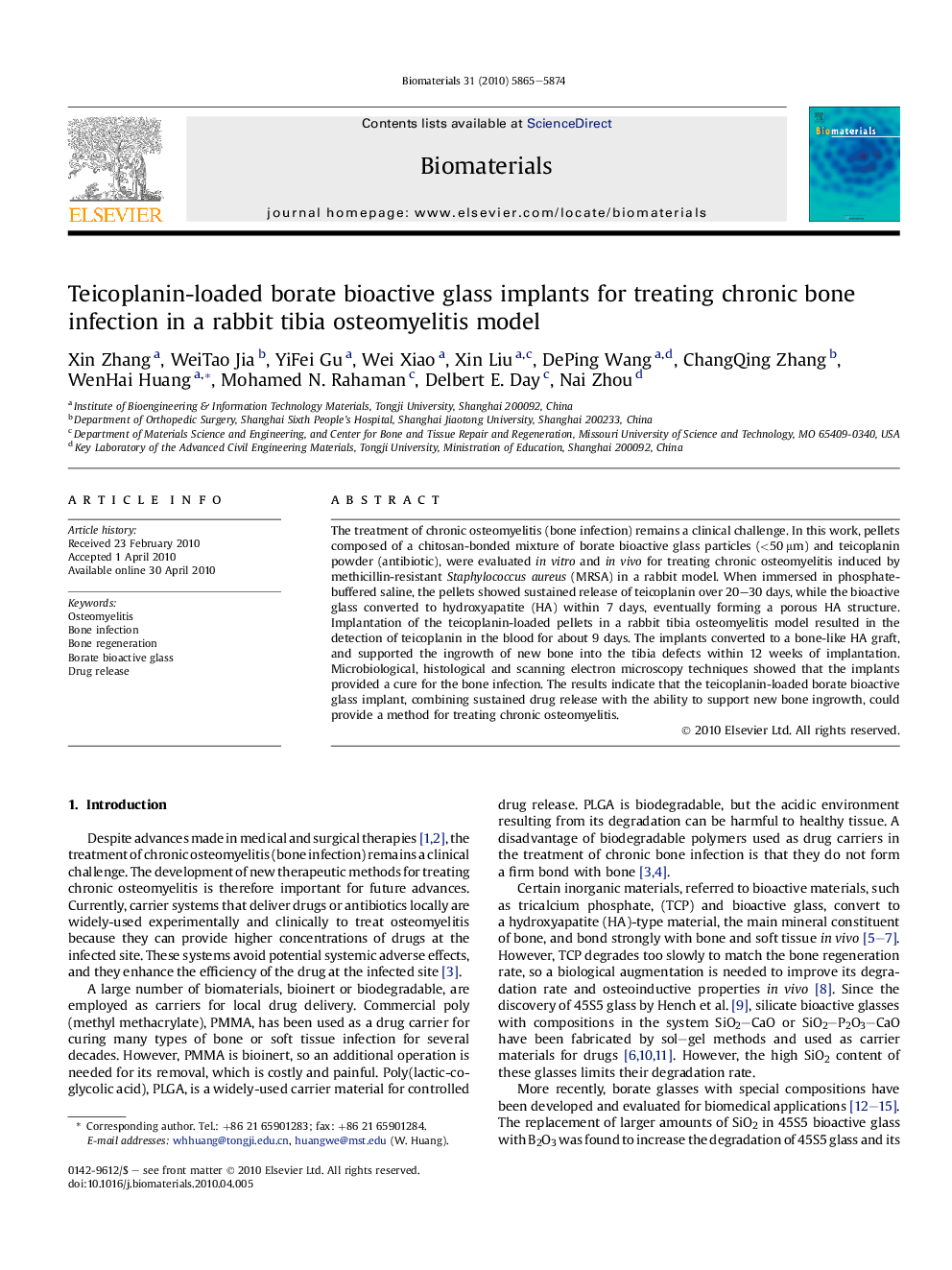| Article ID | Journal | Published Year | Pages | File Type |
|---|---|---|---|---|
| 8194 | Biomaterials | 2010 | 10 Pages |
The treatment of chronic osteomyelitis (bone infection) remains a clinical challenge. In this work, pellets composed of a chitosan-bonded mixture of borate bioactive glass particles (<50 μm) and teicoplanin powder (antibiotic), were evaluated in vitro and in vivo for treating chronic osteomyelitis induced by methicillin-resistant Staphylococcus aureus (MRSA) in a rabbit model. When immersed in phosphate-buffered saline, the pellets showed sustained release of teicoplanin over 20–30 days, while the bioactive glass converted to hydroxyapatite (HA) within 7 days, eventually forming a porous HA structure. Implantation of the teicoplanin-loaded pellets in a rabbit tibia osteomyelitis model resulted in the detection of teicoplanin in the blood for about 9 days. The implants converted to a bone-like HA graft, and supported the ingrowth of new bone into the tibia defects within 12 weeks of implantation. Microbiological, histological and scanning electron microscopy techniques showed that the implants provided a cure for the bone infection. The results indicate that the teicoplanin-loaded borate bioactive glass implant, combining sustained drug release with the ability to support new bone ingrowth, could provide a method for treating chronic osteomyelitis.
